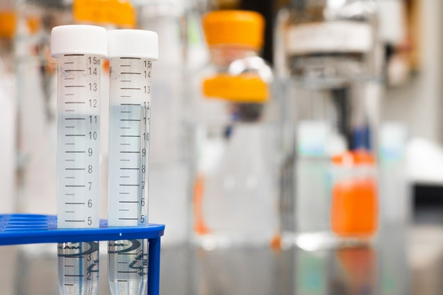What is male factor infertility and what can be done to reverse this condition? Infertility is a condition that affects both men and women in the United States and other parts of the world. It’s a reproductive organ disease that reduces a patient’s ability to have children with their partner. Male infertility refers to the testicles inability to produce enough sperm cells or fertile sperm. On the other hand, female infertility is the insufficient production of eggs or fertile eggs in the ovaries causing difficulties to conceive. A list of treatment and surgical options has been introduced in the healthcare industry to help patients with infertility.

(Source)
In male infertility, the patient’s body might not produce enough sperms or may experience medical difficulties in releasing those sperms that help in conceiving. There can be various causes for male infertility. For most male patients, male infertility is a result of genetic conditions or health disorders.
How Do Experts Diagnose Male Infertility?
The doctors, especially urologists, can help diagnose medical conditions and diseases such as male infertility. They may propose a series of tests or a single test to check whether a male is fertile or not to conceive with a partner. Here’s what the diagnoses methods look like:
Blood Test
The doctor will check for genetic conditions and hormone problems using the patient’s blood sample. This helps them determine if the patient can conceive.
Scrotum Ultrasound
An expert urologist will look for abnormalities in veins near the testicles, mainly the ones responsible for the blood flow between testicles and the rest of the body.
Semen Analysis
The doctor will require the patient to ejaculate in a sterilized container for further testing. The semen/sperm fluid will be sent for diagnosis, where the expert will calculate the total sperm count and reproductive efficacy.
To help solve male infertility issues, expert urologists can carry out various surgeries and advise other treatment options. Surgeries are the most effective methods to treat male infertility, but they can lead to temporary pain, bruises, and, rarely, infections or bleeding.
If you’ve undergone surgery for male infertility, consider discussing the after-effects with an expert urologist. Try to talk to the person who conducted the surgery to get a better insight.
Male Factor Infertility: Micro TESE (Microscopic Testicular Sperm Extraction)?
Microscopic Testicular Sperm Extraction or Micro TESE is a medical procedure that involves the direct extraction of sperm from the male reproductive organs. The male’s reproductive organs’ tissues are targeted to extract healthy sperm out of the body and help with conceiving. If a male patient doesn’t produce or release healthy sperm, then this medical procedure is recommended to help the respective patients and their partners get pregnant.
The testicular tissue targeted for extracting healthy sperm is present on the two testicles inside the scrotum, i.e., the body part where sperm cells are produced.
The Procedure
A doctor or urologist who specializes in urinary tract issues and conditions is the best professional to see for this procedure. However, you must make sure that your chosen urology expert has extensive surgical experience to carry out the procedure effectively with minimal complications.
The surgeon will make minor incisions in the testicles to remove a part of the tissue on the male reproductive organs. Following the tissue removal, the surgeon will examine the extracted tissue to detect healthy sperms. If healthy sperms are present, the surgeon might advise carrying out fertilization with the eggs right away. In other cases, the surgeon can also freeze the sperm cells as per the patients’ discretion to thaw them later for infertility treatment.
The procedure usually takes place on an outpatient basis and doesn’t involve a long-term hospital stay. The Micro TESE procedure begins with an incision in the middle of the scrotum, and after extraction, the surgeon applies dissolvable stitches to the area.

(Source)
What’s Micro Varicocelectomy?
Micro Varicocelectomy is another popular male infertility treatment method that helps in repairing “varicoceles.” It’s a condition where the scrotal veins enlarge to a state of immense pain. Some patients might even experience testosterone production impairment and strong infertility. In the case of varicocele, where your scrotal nerves are painful and impair testosterone production, resulting in poor sexual performance, your urologist can suggest the following microsurgeries.
Varicocele Microsurgery
In this treatment procedure, an experienced surgeon will use microscopic equipment to first identify the enlarged testicular arteries and scrotal nerves. Then, the surgeon will carefully tie off the enlarged nerves permanently to prevent poor blood flow in the groin area. The initial incision to access the enlarged veins will be in the middle of the groin area or where the surgeon recommends.
Varicocele Embolization
This process is less invasive than the microsurgery discussed earlier. It involves the placement of a tiny coil to stop poor blood flow to the abnormal veins.
Male Factor Infertility: Conclusion
You can visit Fifth Avenue Urology to get a diagnosis for urological conditions. The expert doctors, namely Dr. Yaniv Larish and Dr. Leonard Glickman, operate as the top urologists in NYC. They have received advanced education, training, and experience in the field of urology. Offering the best treatment solution for male patients with infertility issues, they possess a compassionate and humble attitude.
Schecule an appointment by calling Fifth Avenue Urology at 212-675-3186 today. Meet the expert urologists to consult about urological diseases and disorders and to discuss treatments.
 Dr. Larish is a urologist and surgeon treating women and men with a variety of urological conditions. His expertise is in treating complex kidney stones, enlarged prostates (BPH), incontinence, erectile dysfunction, infertility, and urological oncology (prostate, bladder, kidney, and adrenal cancers). He is an expert in general urology and is often consulted for second opinions.
Dr. Larish is a urologist and surgeon treating women and men with a variety of urological conditions. His expertise is in treating complex kidney stones, enlarged prostates (BPH), incontinence, erectile dysfunction, infertility, and urological oncology (prostate, bladder, kidney, and adrenal cancers). He is an expert in general urology and is often consulted for second opinions.









